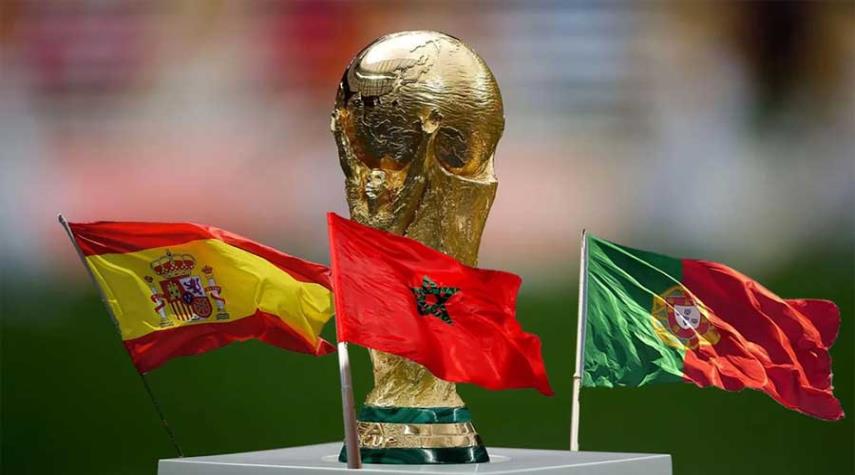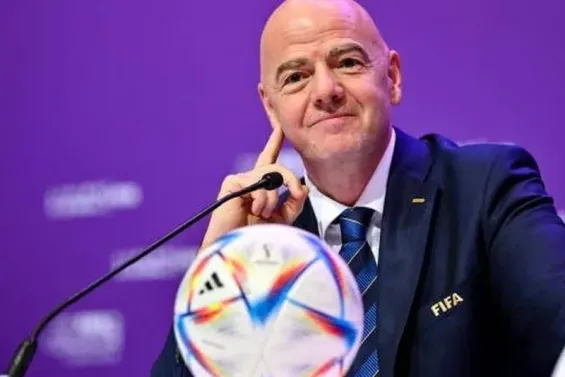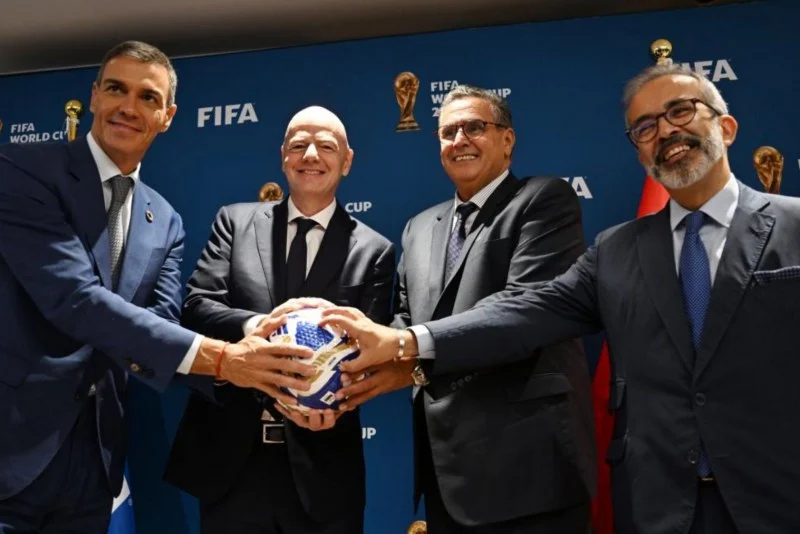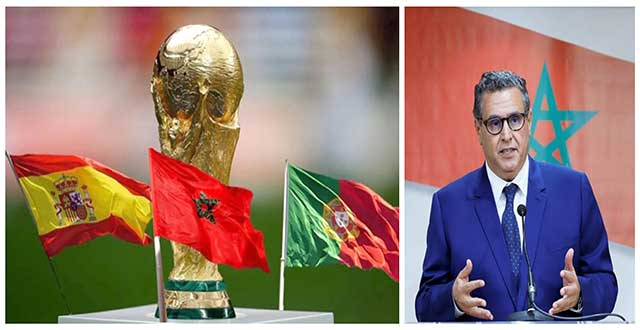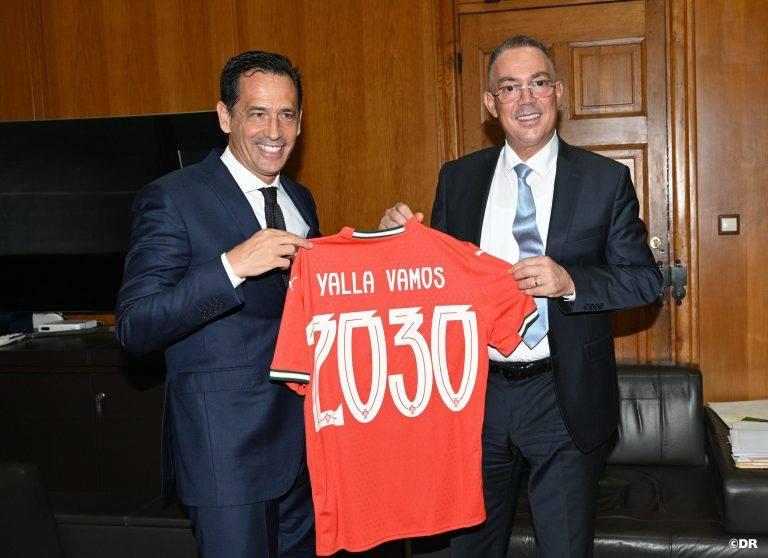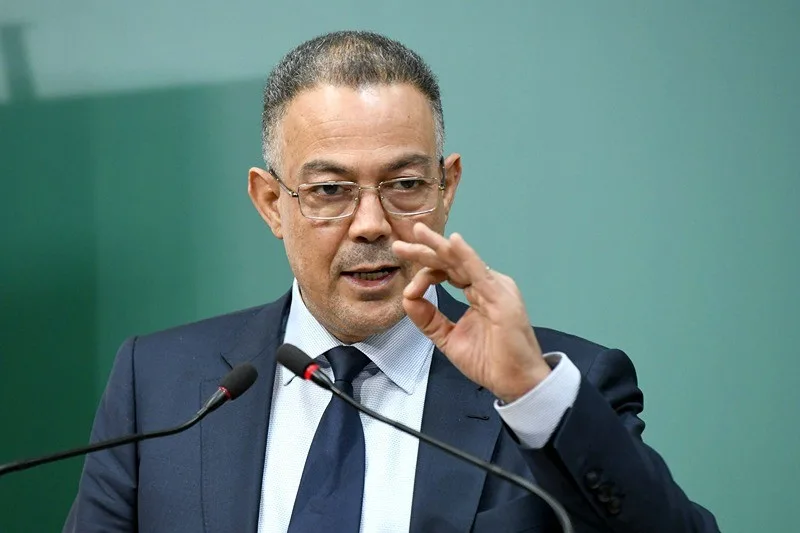Football federations of Morocco, Portugal and Spain officially signed, on Wednesday, the bid agreement to host the 2030 FIFA World Cup.The signing of the bid agreement is a commitment by the three football Federations to respect the rules and framework governing the bidding process, said the Royal Moroccan Football Federation (FRMF) in a statement published on its website, noting that the document also offers guidance on key technical aspects of the bid, including its promotion and evaluation criteria.
“The Moroccan, Portuguese and Spanish football federations will now be working together more closely than ever to develop a bid that will enable the FIFA World Cup to exceed all expectations,” said the FRMF, adding that “in sharing their vision and outlook for the tournament last month, the Federations expressed their intention to deliver a tournament that strengthens the FIFA World Cup legacy, develops football and will have a significant impact worldwide”.With the 2030 FIFA World Cup marking the centenary of the tournament’s first edition, added the same source, “special efforts will be made to ensure that the latter serves as a model for the next 100 years”.”In particular, the host countries will be showcasing their unique cultures to foster collaboration between Europe, Africa and the rest of the world, while ensuring that the event is sustainable, friendly and inclusive for fans of all ages and backgrounds,” according to the same source.At the signing ceremony, president of the Portuguese football federation, Fernando Gomes, said that the signing of the bid agreement represented “a historic moment for our federations and for football in our three countries”.”Today, we celebrate all those who have made this moment possible, and from tomorrow, we work to develop a bid and tournament plan that will impress football fans around the world, and to hold a tournament that will be a unique new experience for all football fans worldwide,” he noted.For his part, president of the Royal Moroccan Football Federation, Fouzi Lekjaa, stressed that “thanks to the vision of His Majesty King Mohammed VI, may God assist him, football in Morocco is developing like never before, from the grass roots right up to our national teams”.”
Joining forces with Portugal and Spain to create a FIFA World Cup that will be revolutionary and forever mark the history of world football. Together, we will make history. The first transcontinental men’s FIFA World Cup. The first to be organized in two continents and three countries. And only the second on the entire African continent.
Our impact can be phenomenal, because our 2030 World Cup will be a footballing event that will mark a new turning point,” stressed Lekjaa.President of the Royal Spanish football federation, Pedro Rocha, said: “We are very grateful for the confidence FIFA has shown in our vision so far (…) and we look forward to working together in the coming months”.”We are aware of the considerable responsibility that comes with hosting a football World Cup, and we are already measuring its full significance. Three countries will host the 2030 FIFA World Cup, but its legacy will be felt everywhere,” he added.
